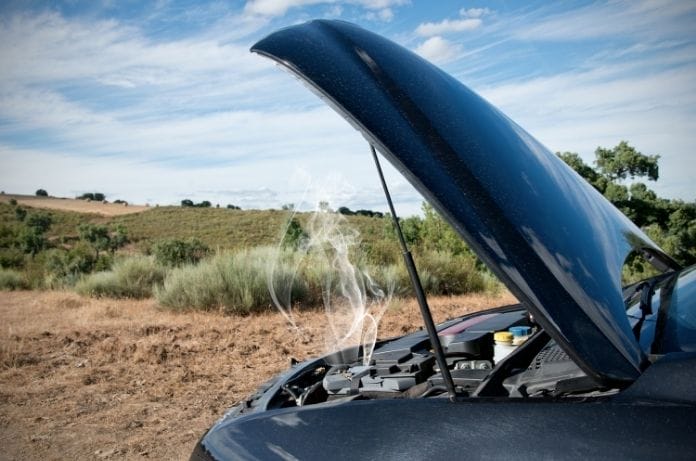The muggy days of summer are fast approaching. For some, this is fantastic news. Others might already be counting down the days to winter’s triumphant return.
Hot temperatures increase the risk of your car overheating. An overheated engine is vulnerable to damage. You must keep your car or truck cool if you want to avoid huge repair bills that will leave you sweating. Here are some tips to prevent your car from overheating.
Coolant Is Your Friend
Coolant, as the name suggests, is a liquid that works to keep the engine cool. Crack open the hood of your vehicle and search for the coolant reservoir. If the lines on the reservoir indicate that coolant levels are low, add more before screwing the cap back on.
One thing to keep in mind is that coolant is a precautionary measure, not a fix. You should never dump coolant into an overheated engine. It’ll cool the engine down, but doing so last-minute comes at a price—the sudden temperature change can lead to the formation of cracks.
Get the Radiator Flushed
Coolant is a handy tool for keeping your engine at the right temperature. Unfortunately, coolant can become dirty after months or years of grueling work. The next tip to prevent your car from overheating is to replace old coolant with new coolant.
Your local mechanic can banish vile, contaminated coolant by performing a radiator flush, also known as a coolant flush. The old coolant gets drained from the radiator, and the mechanic cleans the radiator with flush fluid. Then, they add new coolant to the engine. Ideally, you should have the coolant flushed every 40,000 miles.
Upgrade the Intercooler (For Turbocharged Vehicles)
Turbocharged vehicles are more prone to overheating than naturally aspirated engines. The easiest way to prevent overheating in these super-powered vehicles is to make sure the intercooler is up to standard.
The intercooler is a component that cools down the hot, compressed air the turbocharger produces before it’s sent to the engine for the combustion process. If the intercooler doesn’t perform effectively, it increases the engine’s risk of overheating. Thankfully, the solution is quick and simple: upgrading the intercooler can protect the engine against heat.






